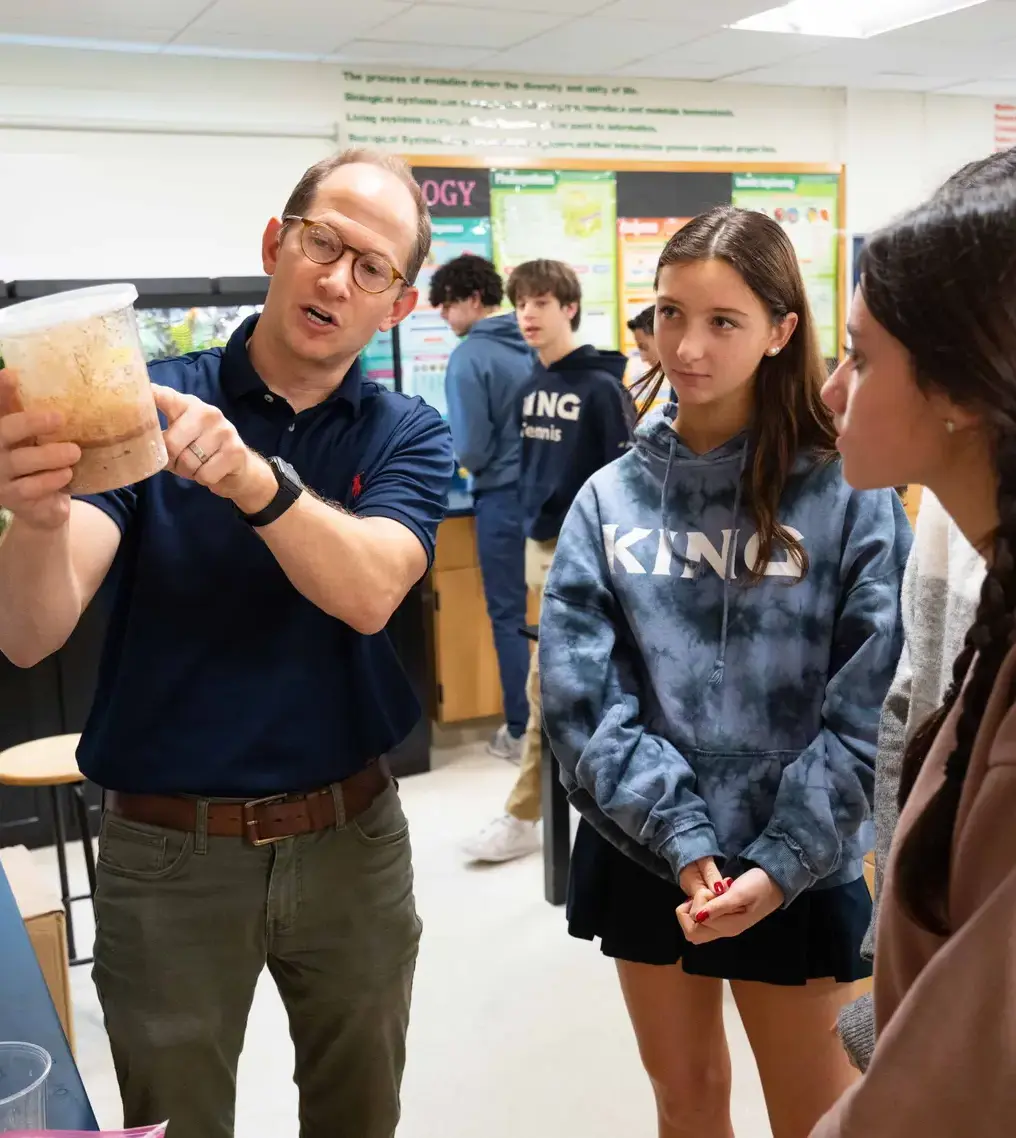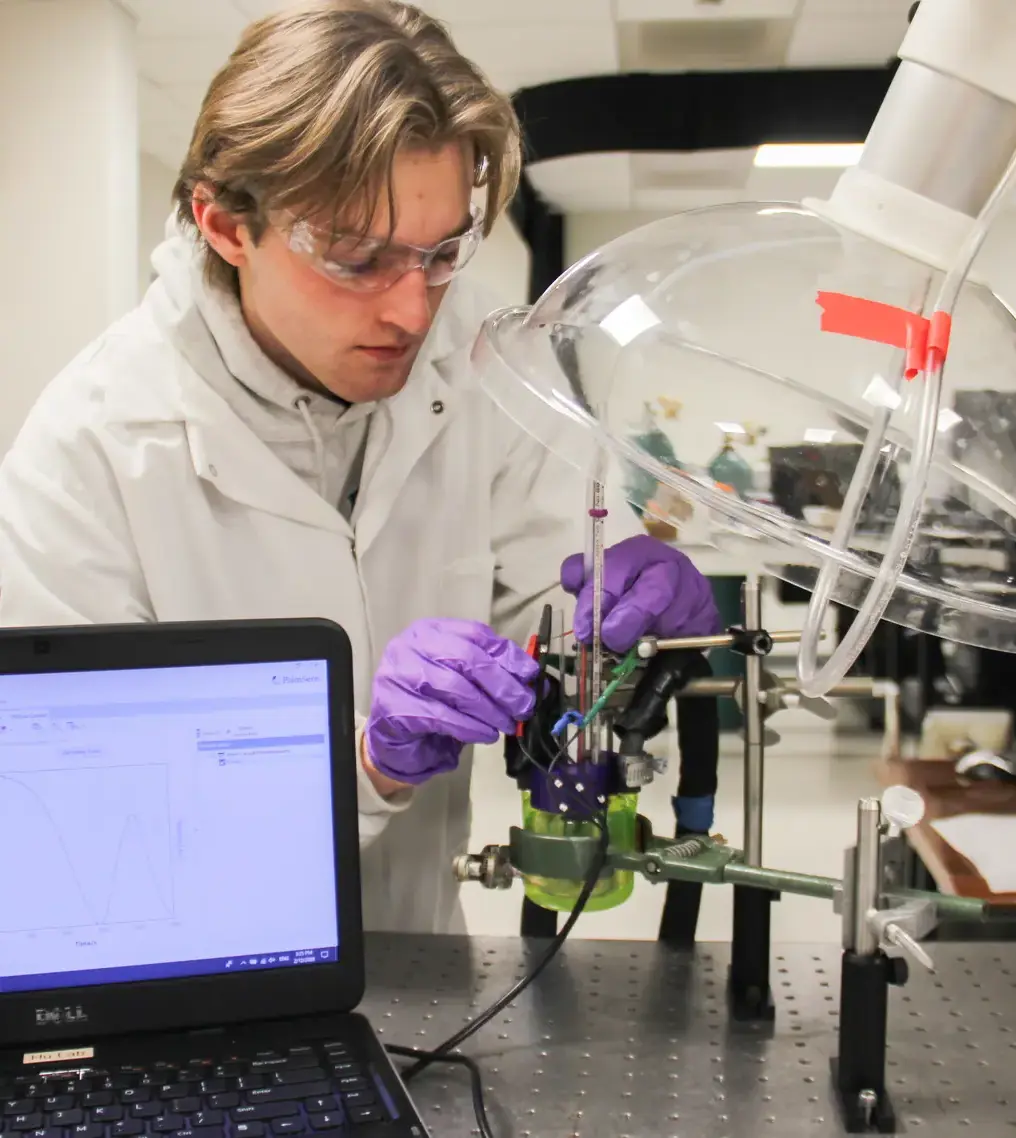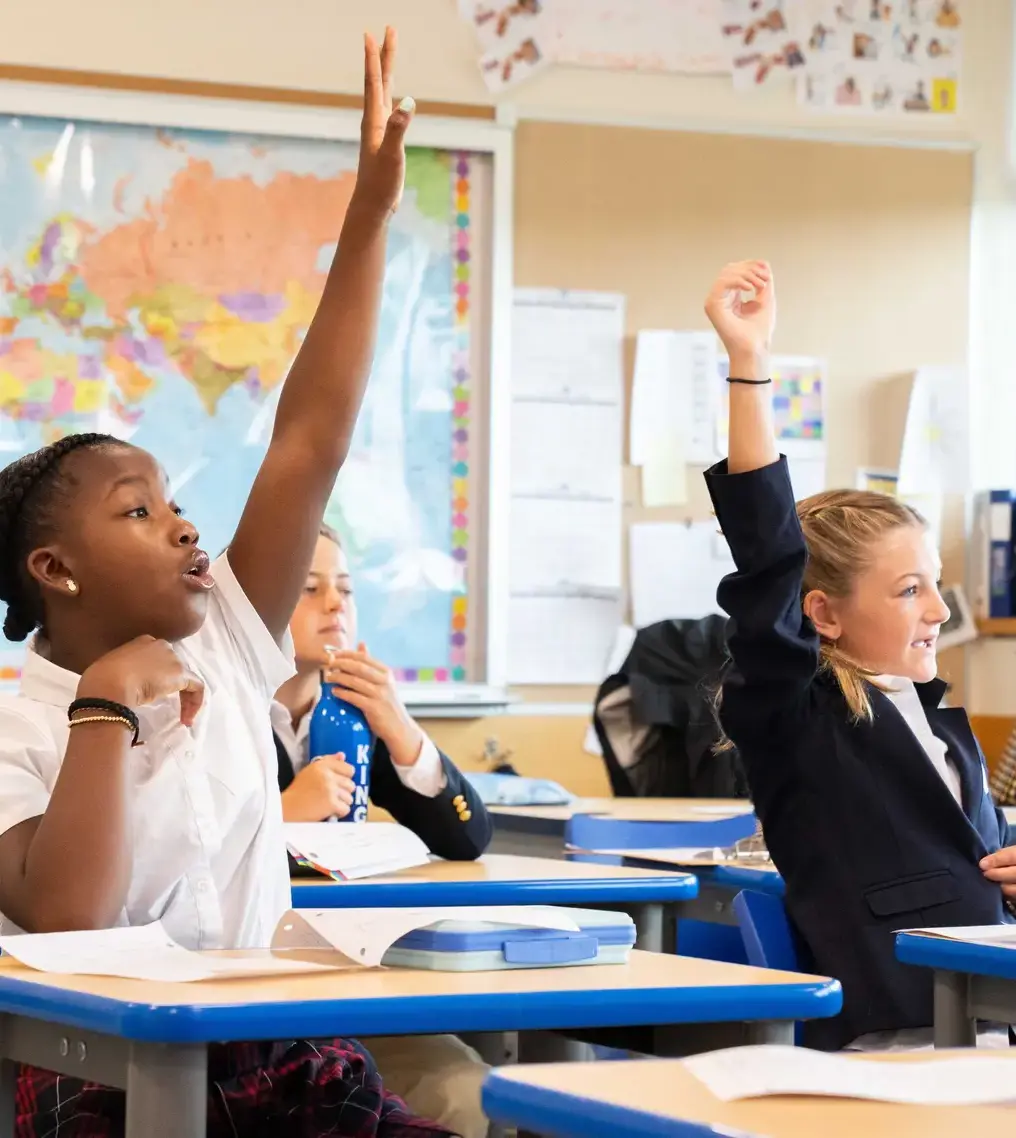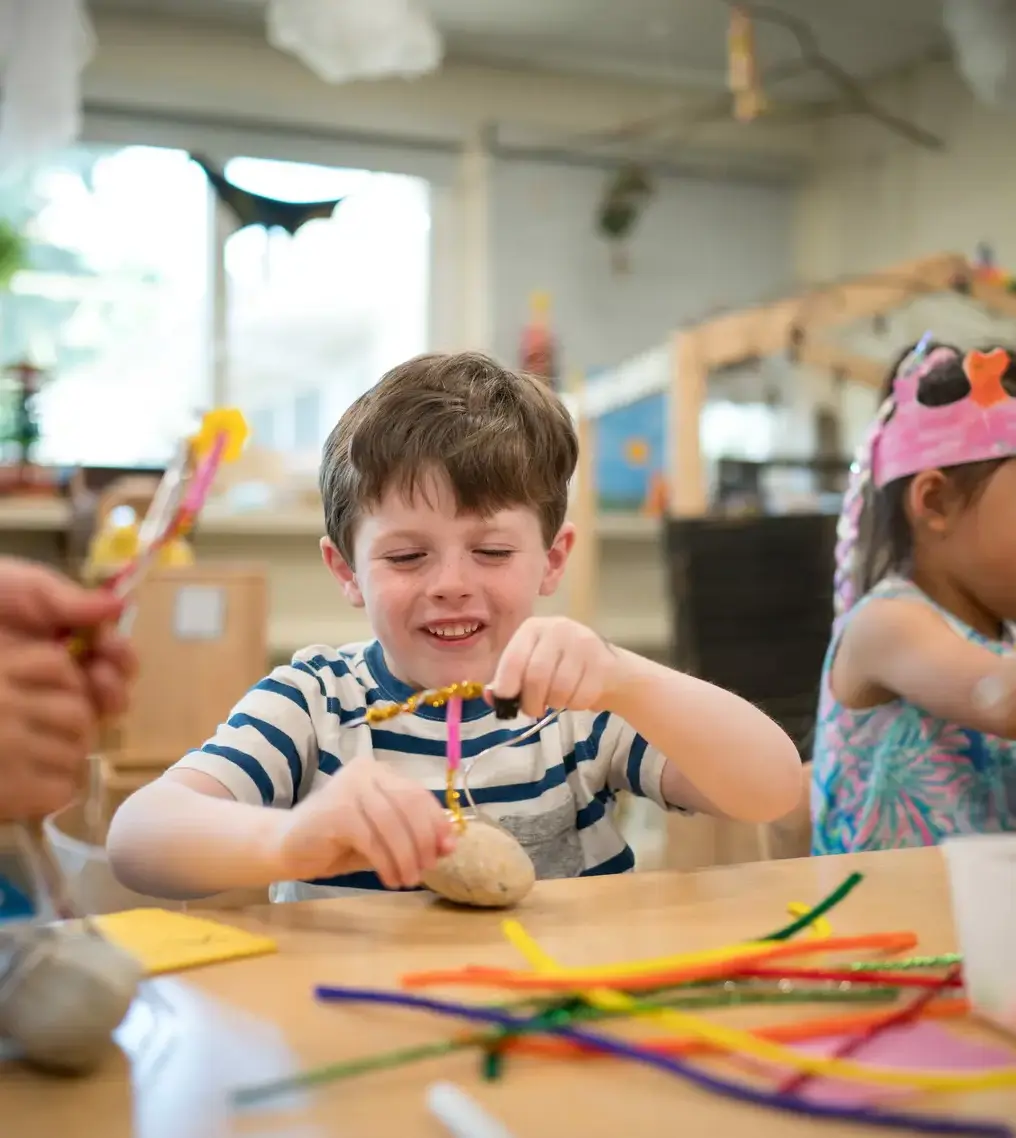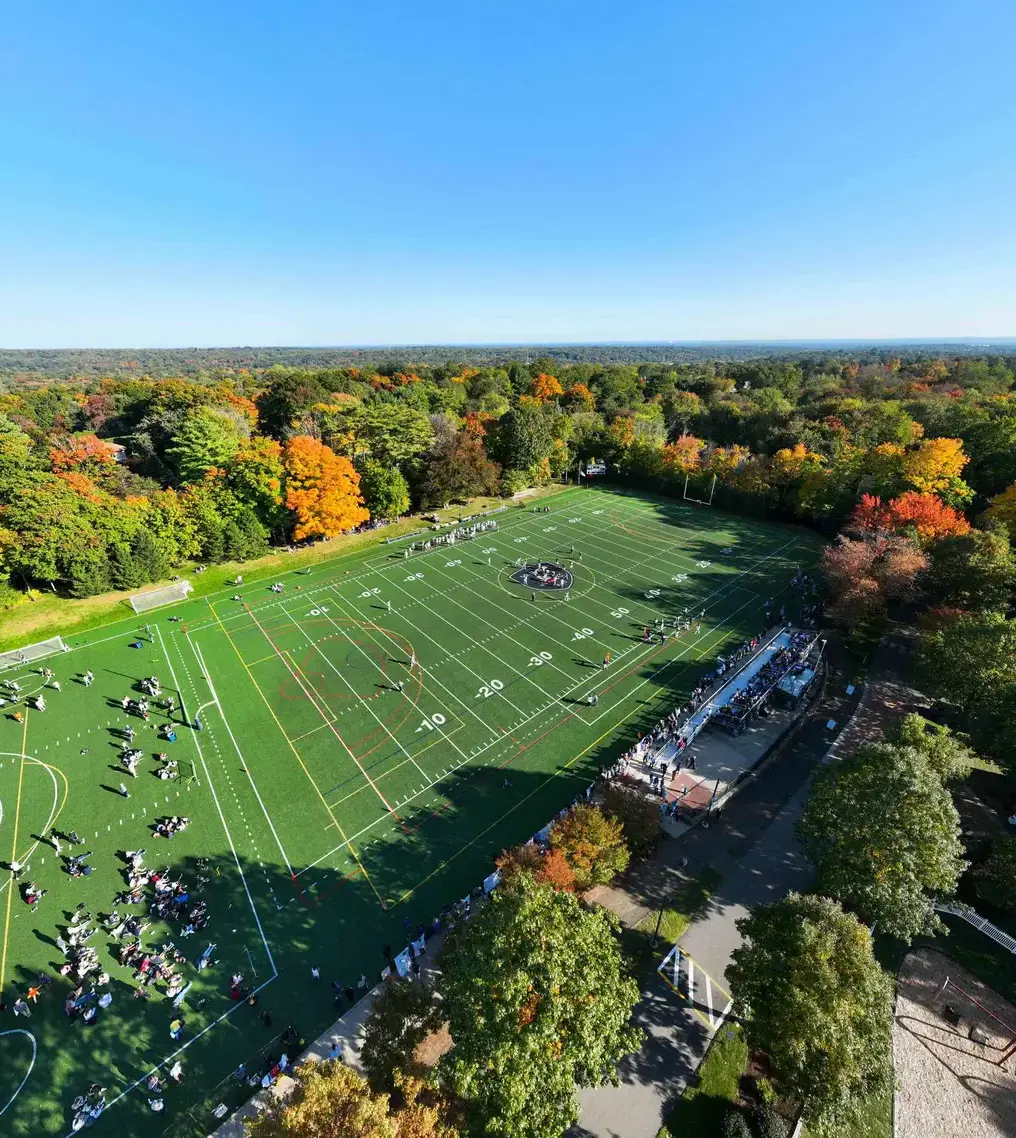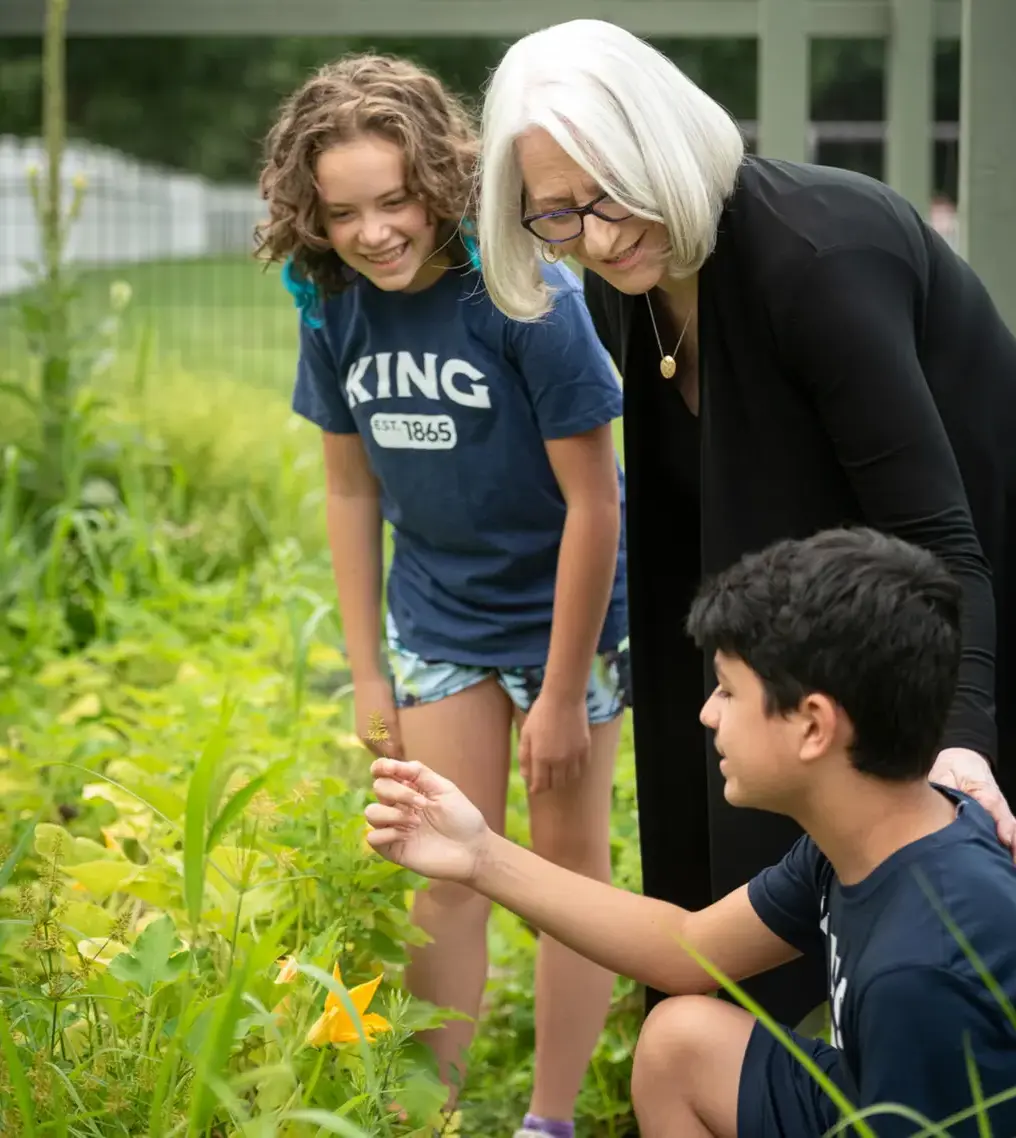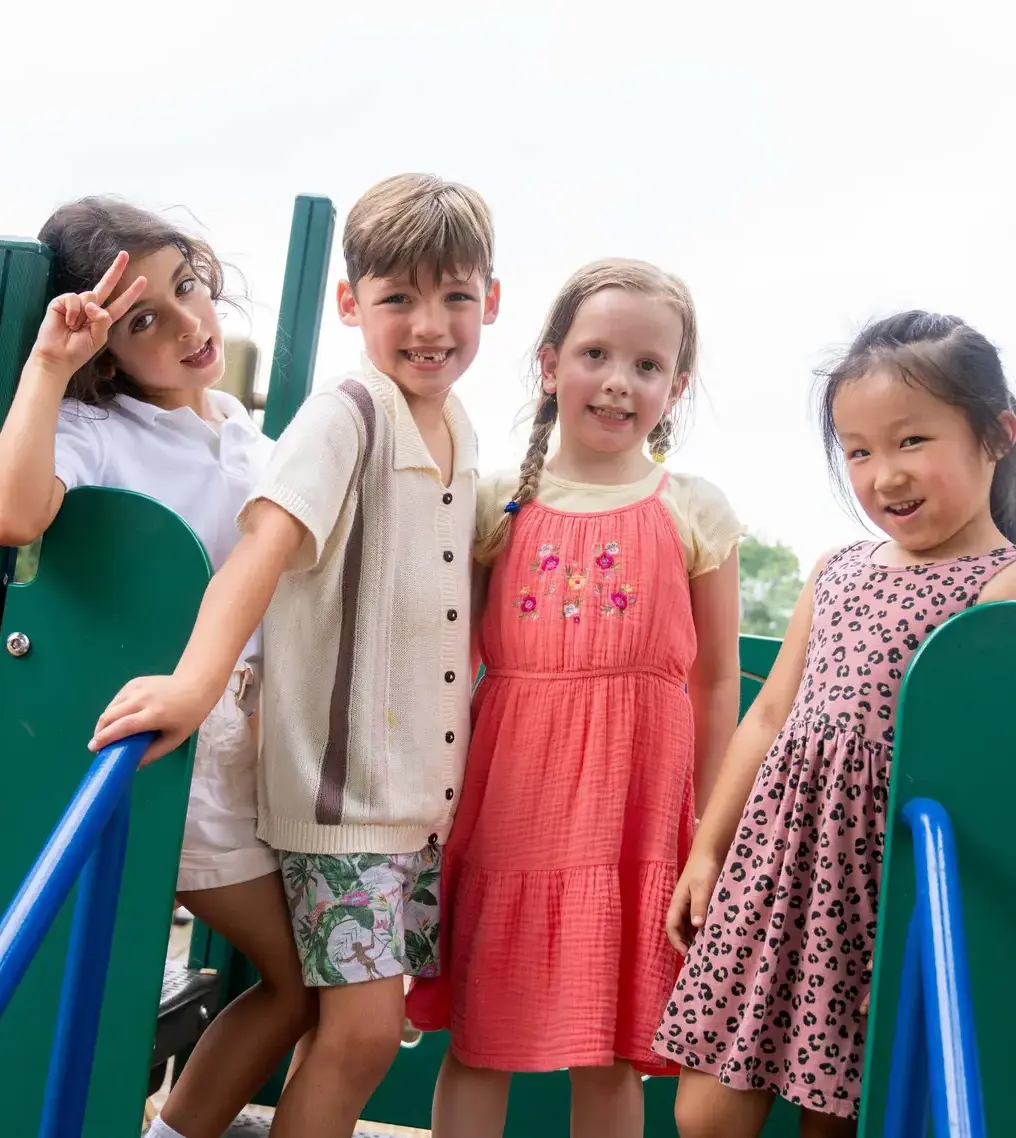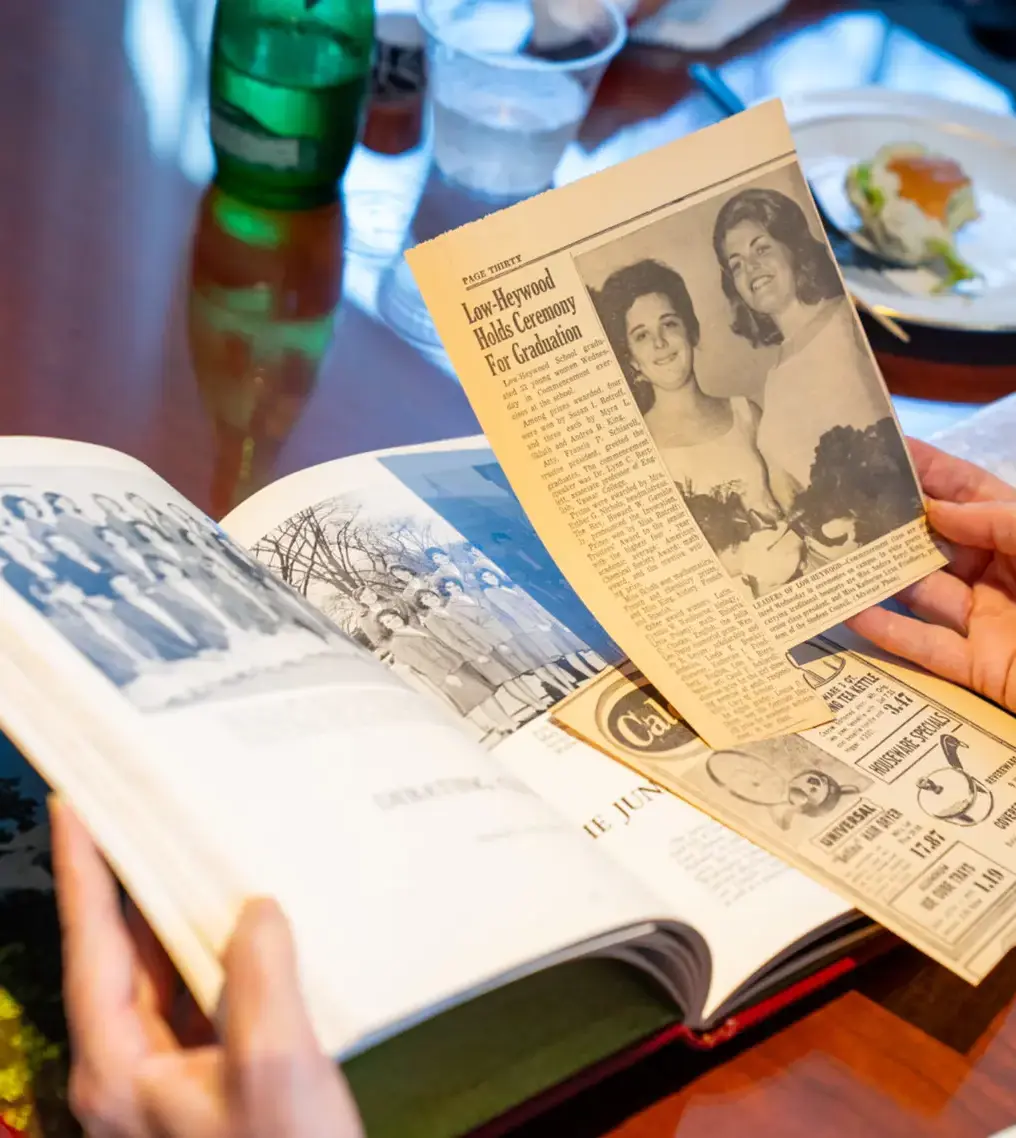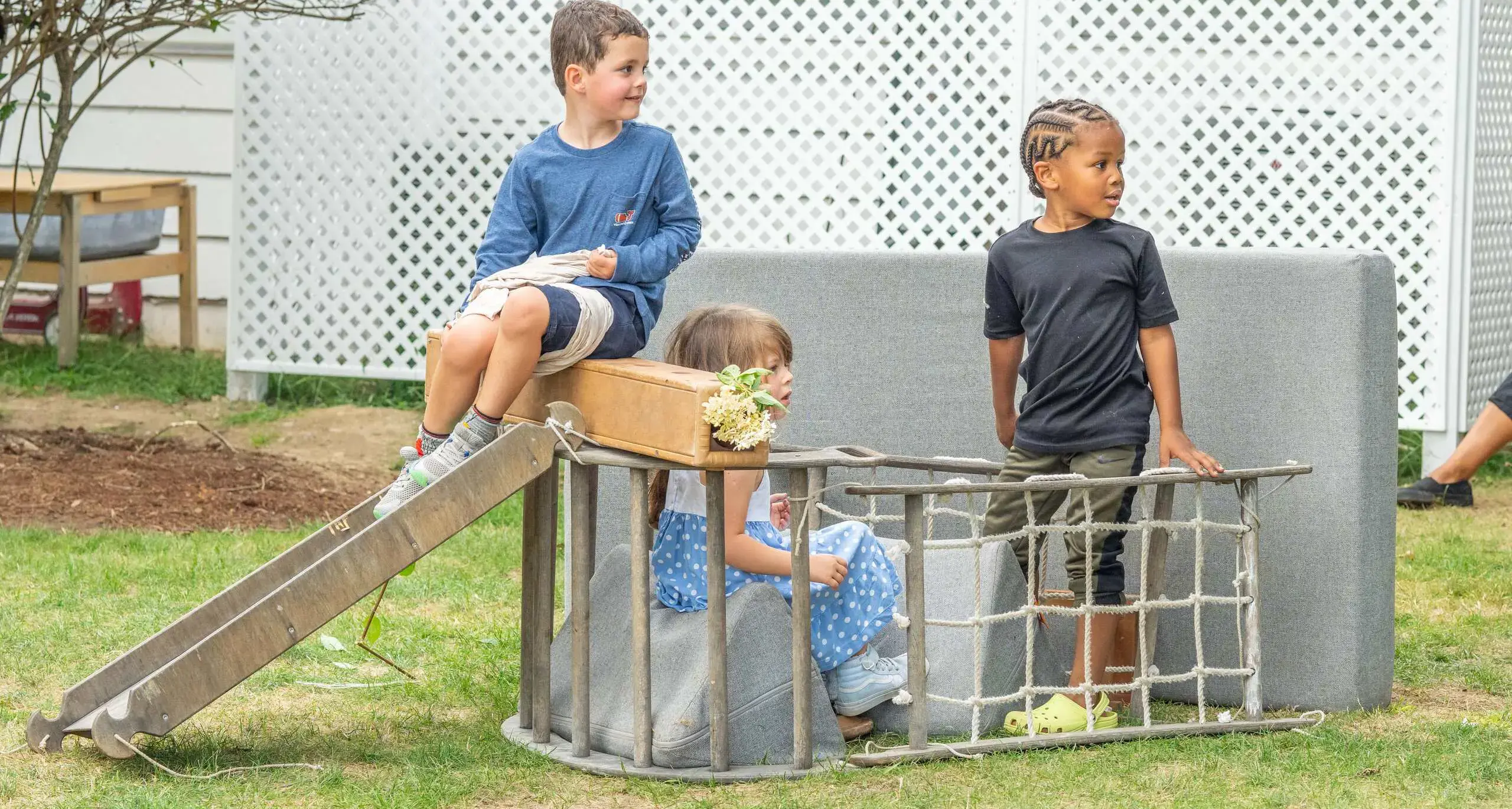Five Questions To Ask Before Enrolling Your Child in an Independent School
While choosing a school may seem daunting, the decision is one of the most important and personal decisions a parent can make. As an attentive parent, you’re probably already compiling a list of questions to ask a school before enrolling your child.
This article will present five key questions to consider when selecting a school for your family:
1. How does the school make curricular decisions?
2. How does the school value diversity and inclusion?
3. How do teachers guide students?
4. How does the school foster personal growth?
5. How does the school promote community?
Typically, schools host an open house or other admission events to highlight their vision, core values, curricular strengths, athletics programs, arts offerings, and clubs. At King, we also include information about “co-curricular” activities, all of which are integral to our core program. This overview is vital, of course, but parents also need time to converse with appropriate school heads, admission directors, college counselors, students, and teachers. To help you learn about the school, bring a brief set of questions that reflect your family’s priorities, and if possible, try to determine who should answer these questions. Evaluating answers to the right questions asked of the right people will help you make the best decisions about the right school for your family.
Here are five questions we recommend that you ask a school before enrolling your child.
1. How does the school make curricular decisions?
We make all curricular decisions with the school’s mission statement in mind:
King is dedicated to preparing its students to thrive in a rapidly changing world.
We provide an excellent, progressive education, grounded in the traditional disciplines of the arts and sciences, committed to the nurturing of individual potential, and designed to promote critical thinking and reasoned reflection. Using rich and innovative methods, our teachers facilitate each student’s fullest academic and personal achievement. We champion the development of character, self-confidence, and talent through challenging intellectual, creative, athletic, leadership, and service opportunities.
King believes that individual accomplishment must go hand in hand with respect for others. Our culture of respect fosters collaboration as well as independence. We embrace human and cultural diversity. We value responsible citizenship.
King graduates are well equipped to succeed in college and to pursue lives of ongoing inquiry, learning, accomplishment, personal fulfillment, and social responsibility.
Specifically, we prioritize three areas:
- Excellence in the student’s academic experience
- Solid co-curricular courses and activities that pair with ongoing wellness programs
- Research-based learning that allows students to work on projects and activities that spark curiosity and courageous thinking
At King, we want children of all ages to develop a lifelong love of learning, which is why we have adopted a flexible, student-centered curriculum that encourages students to explore their world and to think deeply. Whether a student is learning about a core subject, such as history, science, literature, math, or a foreign language, the goal is engaged, meaningful learning. Developing a deep and sustained interest in a topic begins with research. Research-based learning empowers students to make connections about diverse topics, preparing them to enter the world as skilled, informed adults. Rigor, in its truest sense, involves a thorough, sustained, and stimulating exploration of a subject, challenging students to reach their potential with nimble, innovative thinking. At King School, we believe that students who develop their intellectual capacity are more apt to navigate the 21st century successfully. By emphasizing science and the liberal arts, we teach students, from Pre-Kindergarten through Grade 12, how to think.
For instance, we believe that young people can learn to think like mathematicians and scientists, applying logic to hypotheses. Starting in the Lower School, children enjoy hands-on activities in Singapore Math, moving them from concrete thinking to pictorial representations and abstract concepts. By the time they enter the Middle and Upper Schools, students are ready for courses that require robust problem-solving. Motivated students in Grade 8 can take a high-school-level Geometry Honors course, taught by Middle School teachers who tailor the lessons to Middle School students. Upper School students can enroll in Multivariable Calculus, Conceptual Physics, Environmental Science and Sustainability, or Engineering Design and Development.
- Similarly, we believe that young people can learn to think like historians, relying on evidence-based reasoning as they contemplate the human condition. For instance, Pre-Kindergarten and Lower School children discuss national, cultural, and religious diversity, thus developing respect and empathy. Middle School students begin to gain a deeper grasp of the underlying issues behind social struggles in courses such as Global Perspectives and A More Perfect Union: American History and Civil Rights. Eventually, Upper School students research cause and effect in courses, including Hubris in Ancient History, America in the Sixties, or Modern Ireland: Nationalism, Radicalism, and Violence from 1641-present.
At King School, we believe that students of all ages should view themselves as scholars, philosophers, artists, and builders, maturing into productive, imaginative adults who know how to interpret significant cultural shifts.
Thus, for a school to offer a first-rate education, it must correctly define “rigor” and actively encourage students to discover their passions. Since 1865, King has offered groundbreaking, student-driven courses that engage and shape the whole person, enabling the student to discover his/her potential.
We realize that learning occurs all the time, whether students debate a sensitive topic in a Socratic conversation or collaborate on a project during a breakout session. As a premier school, King invites students to pursue their interests and achieve their dreams, often in courses such as these:
- Our Lower School students learn world languages, beginning in PreKindergarten with Spanish and culminating with trimester-driven studies of Spanish, Mandarin Chinese, and French in Grade 5. We foster their curiosity to boost their learning experiences.
- In Middle School, children continue their journey from student to scholar with additional research-based learning. As a result, students from Grades 5 to 8 hone their ability to ask penetrating questions, to evaluate information, and communicate clearly through reading and presentations. They apply these skills in all subjects, developing their capacity to reason, research, and solve problems.
- Our Upper School students have the opportunity to research topics with far-reaching implications in courses, such as Global Studies, Financial Market Economics, Literature of Social Reflection 1: Children of Crisis, Literature of Social Reflection 2: Affluence & Poverty, and World Religions. King’s Upper School students can also Skype with a research scientist at Cornell or Sloan Kettering through our ASPIRE Program, an internship that prepares motivated young men and women to help solve real-world problems.
As a student-centered school, we invest the necessary time and energy to help students achieve their goals by creating a flexible educational path that is both rigorous and meaningful.
2. Does the school value diversity and inclusion?
As you consider the questions to ask a school before enrolling your child, think about diversity and inclusion. When students learn in a community of people virtually identical to themselves, they miss out on the richness that diversity offers. Upon graduation, these young people will encounter a diverse world at college that includes people from various countries, backgrounds, experiences, and beliefs; therefore, they need to break out of the “bubble” and begin to think courageously. As adults, they may seek employment with prominent, international companies that already embrace diversity and inclusion, ensuring that divergent voices have a chance to influence conversations about new products, services, evolving markets, and changing business practices. We recommend gravitating toward a school that prioritizes and demonstrates diversity and inclusion in its student body, faculty, curricula, and activities.
At King School, we intentionally seek to understand the facets of diversity and identity that shape a student’s perception of fact and truth; indeed, we know that inspiration flourishes whenever students learn alongside diverse individuals. At King, diversity includes representation, ensuring that people across a wide spectrum of worldviews, abilities, races, genders, sexual orientations, socio-economic statuses, religious beliefs, and political affiliations are part of a community. King’s commitment to diversity frequently leads to innovation and creativity, resulting in empathy, respect, safety, and equity. Furthermore, at King School, we ensure fairness in access to information and resources for all, which entails acknowledging that different students have different needs to achieve success and putting those tools in place. Inclusion requires intentional practice on everyone’s part so that students, families, faculty, and staff experience King as a welcoming community to which they belong. Here are a few examples:
- In each of King’s lobbies, for example, visitors will notice flags from 65 countries, representing our students, faculty, and staff members’ countries of origin. This beautiful symbol of humanity reminds students that they must join society with open hearts and minds.
- At every grade level, the school creates opportunities to underscore equity and inclusion. For instance, every year we host a Global Fair for students of all ages. Starting in Pre-Kindergarten through Grade 5 in the Lower School, our students enjoy activities that ask, “Who Am I?” and “What Makes Me Unique?”
- Our Middle School students participate in activities within advisory, explore diversity through the books they read, and attend an annual diversity conference.
- Upper School students also take part in activities within advisory, experience programs with guest speakers, and student representatives participate in diversity leadership conferences. Additionally, King encourages students to participate in affinity groups, spaces that cultivate diversity, equity, and inclusion through constructive conversations about social issues and corresponding events that raise awareness.
- Faculty, staff, and parents also participate in a series of special programming specifically around diversity, equity, and inclusion.
- We have affinity groups in the Middle and Upper schools based on historically marginalized ethnicities, religions, and abilities.
This may be one of the most critical questions to ask before enrolling your child in an independent school. Again, King’s student-centered education focuses on training the whole person so that our graduates are ready to thrive in an ever-changing world.
3. How do teachers guide students?
Another important question to ask before enrolling your child involves healthy, academic interaction between teachers and students. According to The Brookings Institution, states across the nation mandated or incentivized smaller class sizes in 2011. However, many schools still struggle to comply with these goals due to population shifts and fluctuating economic trends. Yet, research indicates that students thrive in smaller classes, especially when they are able to build strong relationships with their teachers and peers.. As a result, students engage in the learning process, reducing the need for disciplinary action, while building confidence and increasing success.
- At a student-centered school, educators have time to know the students, then formulate lessons that spark curiosity. King’s average class size is 15 students, with an average student-teacher ratio of 6:1. In other words, our classes are large enough to foster vigorous discussion, yet intimate enough to nurture safe, healthy relationships.
- Furthermore, King’s teachers are allies and mentors who champion their students’ efforts and equip them to succeed as they pursue their passions with courage and ingenuity.
4. How does the school foster personal growth?
Although school is a “laboratory” for ideas, students acquire far more than knowledge. They develop proficiencies that prepare them for adulthood. At King, students develop grit and resilience by facing obstacles and collaborating with peers, teachers, and advisors. Taking risks can feel uncomfortable, but we know that “failing forward” can lead to greater success as students mature. The King community enables students to learn from their failures, reminding them that our school is a safe place. Indeed, King’s commitment to the student experience as its top priority shapes the approach to all the courses and the broader experience of attending King (in and outside the classroom). Here are a few examples to consider.
- The Lower School features interactive STEM classes in creative spaces, such as our Makerspace and our Computer Science Media Center, which enhance problem-solving. Additionally, children study World Languages (Spanish, French, and Chinese), which boosts speaking, writing, and listening skills.
- Middle School students take courses that develop self-awareness, such as Fundamentals of Communication, Civic and Personal Responsibility, and Exploring the Web of Life. Students may also sign up for clubs, including Marvelous Movie Club, Ocean Challenge Club, or Logic Club.
- Upper School students can enroll in challenging courses and activities that hone communication, research, and problem-solving skills. Of particular interest are Advanced Programming with Robotics, Leadership Foundations, Field Archaeology, Microfinance/Social Entrepreneurship, and the Rocketry Club.
5. How does the school promote community?
Another vital aspect to consider before enrolling your child is the school community. Frequently, though, a school will simply refer to “community” in terms of events and parent-teacher organizations. However, at a well-established school, such as King, “community” reflects service and shared values. Besides the numerous opportunities for students and families to connect and serve, King provides an impressive assembly of professionals whose purpose is to help students grow. Indeed, some examples of our commitment to community come from our unified approach to student academic and personal success.
- At King, each student has a Student Learning Profile that teachers and advisors review periodically. Together, they set goals, identify learning patterns, and formulate a plan that empowers the student to pursue passions.
- King’s Grade Deans also provide guidance to individuals within a grade and to the grade as a whole; the deans track progress from an academic, social, and emotional perspective.
- Students in Middle and Upper School also have advisors who meet with students daily to check on student progress and overall wellness.
- Additionally, King’s highly trained School Counselors provide individualized assistance for students who need academic or social support.
- King’s Directors of Teaching and Learning work with students to improve academic performance, developing individualized academic plans that utilize the student’s learning patterns.
- Finally, our College Counselors provide a four-year developmental program, starting in Grade 9, that empowers students as they reflect on their passions, capabilities, and ambitions, while discovering the most competitive match for each student
At King, students and parents can always find the support they need. Whether families desire to connect socially, through service projects, or as they prepare their children for college, the King community is ready to help, encouraging people to forge lifelong relationships.
One Final Note
When visiting a school, be sure to speak to the students. Here are a few questions to ask before enrolling your child:
- What do you appreciate about this school?
- Why do you stay?
- How is the school preparing you for college and life?
Often, students will paint a surprisingly accurate picture of the school’s rigor, diversity, and experience, as well as opportunities for personal growth and community. These may be some of the most helpful questions to ask a school before enrolling your child.
Learn More About King School
At King School, we seek more than achievement for our students. We open minds and spark courageous thinking. Every day, our students discover and forge their unique paths to excellence as we teach, guide, and cheer them on. When we set better standards for both the experience and outcomes of education, students cultivate the insights and heart to own their own future.
King School is an independent, co-educational day school, enrolling students from PreKindergarten through Grade 12. Our school encompasses 34 acres, 1 mile from the Merritt in Fairfield County, Connecticut.
Next Steps
If you want your child to become a curious, agile thinker, consider King. Our outstanding program can open your students’ minds and spark courageous thinking.
Want to know more about the King experience? Contact us today.

